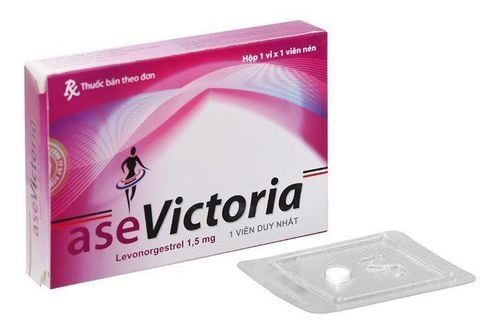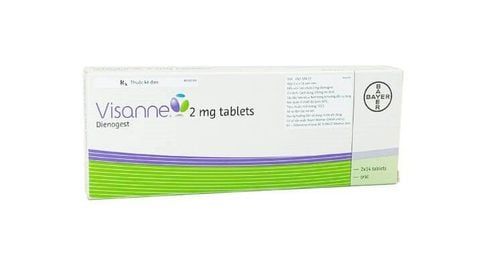The article was professionally consulted by Dr. Hoang Thi Anh Tuyet - Department of Obstetrics and Gynecology - Vinmec Central Park International General Hospital.
Contraceptive pills are a method trusted by many women because of their convenience and effectiveness. However, many postpartum mothers still do not know how to use emergency contraceptive pills while breastfeeding to ensure safety.
1. Overview of emergency contraceptive pills while breastfeeding
Contraceptive pills are one of the most effective contraceptive methods that women can use. If used correctly, this type of pill can be up to 99% effective. However, many people wonder whether taking contraceptive pills while breastfeeding is safe. Most postpartum women are worried that the ingredients in contraceptive pills will affect the baby through breast milk.
Regarding the issue of choosing a safe emergency contraceptive while breastfeeding, doctors say that there are 2 types of emergency contraceptives:
- Drugs containing the active ingredient levonorgestrel: Trade name is Postinor 1 or Postinor 2;
- Drugs containing the active ingredient mifepristone 10mg: Trade name Mifestad 10, Mifentra 10...
Emergency contraceptives for breastfeeding mothers containing the active ingredient mifepristone 10mg are contraindicated. Therefore, women who are breastfeeding can use the drug containing the active ingredient levonorgestrel, Postinor 1 or Postinor 2, without fear of affecting the baby.
Although an emergency contraceptive pill for breastfeeding mothers only contains a small amount of progestin, it is not too harmful. However, both breastfeeding mothers and all women in general should only use emergency contraceptives in cases of real necessity. Do not consider this option or abuse it regularly if other contraceptive methods can be applied.
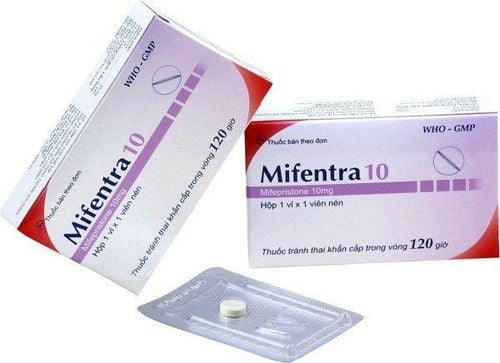
2. How to use Postinor
Postinor emergency contraceptive pills have been used and proven effective worldwide. The manufacturer says that if you take Postinor as directed, you are 99% sure that you have successfully prevented pregnancy.
You need to take 1 - 2 emergency contraceptive pills within 72 hours (3 days) after unprotected sex or failed contraceptive methods. However, the sooner you take it, the more effective it will be. It is best within 24 hours after intercourse - the period when the drug will be most effective.
Do not use Postinor in the following cases:
- Women who are pregnant (although it does not harm you or the fetus, the drug is no longer effective in preventing pregnancy);
- Allergy to Levonorgestrel or any of the ingredients of the drug;
- Want to prevent HIV infection and sexually transmitted diseases (STDs).
In general, emergency contraception should not be used regularly. If used more than once in a cycle, women are more likely to have menstrual disorders.
Although side effects are rare, about 1% of women will vomit after taking emergency contraception. If vomiting occurs within 3 hours of taking the drug, women need to take another pill. See a doctor if the menstrual cycle is more than 5 days late, or there is an abnormality in menstrual blood, as well as sudden pain in the lower abdomen.
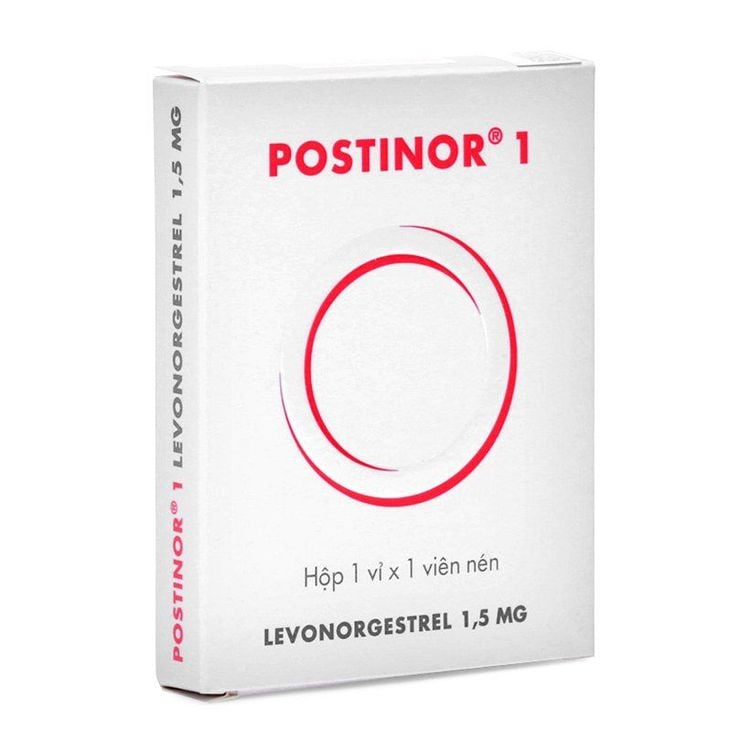
3. Other contraceptives while breastfeeding women
Trắc nghiệm: Những điều cần biết về kiêng cữ sau sinh
Sau sinh, cơ thể sản phụ sẽ có rất nhiều sự thay đổi, việc thực hiện tốt các kiêng cữ sau sinh và bổ sung đầy đủ các chất dinh dưỡng cho cơ thể sẽ giúp ích rất nhiều trong quá trình hồi phục sức khỏe. Bài trắc nghiệm dưới đây sẽ giúp mọi người có cái nhìn tổng quan về kiêng cữ sau sinh và thực hiện sao cho phù hợp nhất.The following content is prepared under supervision of Thạc sĩ, Bác sĩ y khoa, Tạ Quốc Bản , Sản phụ khoa , Khoa Sản phụ khoa - Bệnh viện Đa khoa Vinmec Phú Quốc
3.1. Progestin-only contraceptives (POPs)
In addition to emergency contraceptive pills while breastfeeding containing levonorgestrel, women can also choose hormonal contraceptives containing progestin-only pills (POPs). The drug currently on the market is Embevin, which is used daily and is very effective and safe while breastfeeding.
POPs are also known as mini-contraceptives, although they only contain a small amount of progesterone, they are still nearly 100% effective in preventing pregnancy. However, users must be careful and pay attention to taking the pill at the right time every day. Because delaying or forgetting to take the pill for just 3-4 hours can also cause problems.
Daily progestin-only pills work by thickening cervical mucus and preventing sperm from reaching the egg. Some types also help prevent ovulation. Experts say that using POPs for 6 months after giving birth is a wiser choice than the rest.
3.2. Combined oral contraceptives
Combined oral contraceptives are also very effective in preventing pregnancy, but they contain both progesterone and estrogen. Although these hormones do not directly affect the newborn, they reduce breast milk production by up to 41.9%. If you want to use combined oral contraceptives, you should wait until your baby is 6 months old - the stage when your baby is starting to eat solid foods and will not be affected much if the amount of breast milk is reduced. On the contrary, the first half of life is the time when your baby needs a lot of breast milk.
3.3. Other types of oral contraceptives
If you do not intend to use oral contraceptives or are someone who often forgets when taking POPs, you can also consider other types of contraceptives such as:
- Injectable contraceptives: Depo-Provera;
- Hormanal intrauterine devices (IUDs): Mirena, Skyla;
- Contraceptive implants: Implanon, Nexplanon.

4. Some notes when using contraceptive pills while breastfeeding
When using contraceptive pills while breastfeeding, women need to remember the following points:
- Consult your doctor or pharmacist first for instructions on the most appropriate contraceptive pill method (even if you only use low-dose emergency contraceptive pills while breastfeeding);
- Some side effects when taking hormonal contraceptive pills while breastfeeding include: reduced milk production; the baby becomes irritable and uncomfortable (common but not proven by research); increased risk of type 2 diabetes (especially if there is a history of gestational diabetes);
- Consider choosing another contraceptive pill method if reduced milk production affects the baby's weight, or if the mother is sleep-deprived and exhausted, making the drug ineffective;
- Condoms should be used to prevent pregnancy and prevent sexually transmitted diseases.
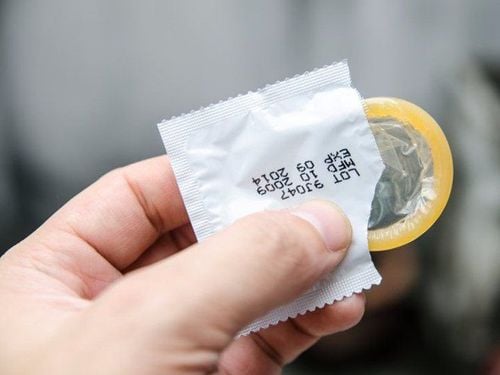
Women who are breastfeeding are still able to get pregnant, so they need to proactively apply safe contraceptive measures. Emergency contraceptive pills while breastfeeding contain the active ingredient levonorgestrel, which will not harm the baby, so women can rest assured to use them when necessary. If they continue to breastfeed, women should see a doctor for advice on choosing a long-term contraceptive method that is most suitable for breastfeeding mothers.
To arrange an appointment, please call HOTLINE or make your reservation directly HERE. You may also download the MyVinmec app to schedule appointments faster and manage your reservations more conveniently.







